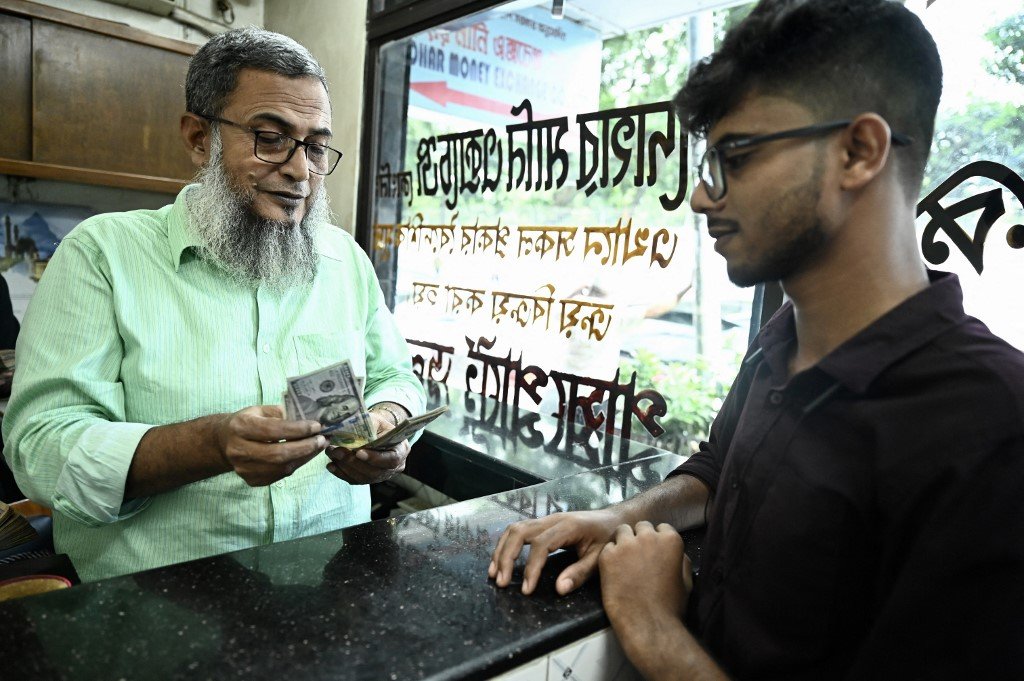DHAKA: Bangladesh, one of the fastest growing economies, has joined others in the South Asian region to seek a loan from the International Monetary Fund, a move experts say is aimed at creating a buffer in its reserves to prevent a crisis situation faced by other regional countries.
Bangladesh’s $416 billion economy has been one of the fastest growing in the world for years, but globally rising food and fuel prices have put a strain on its balance of payments and the current account deficit.
Bangladeshi Finance Minister A. H. M. Mustafa Kamal told the media on Wednesday that the country had applied to the IMF to start a formal negotiation to obtain loans for balance of payments and budget assistance, even though it was “no way in trouble” in its macroeconomic situation.
Kamal has not specified the amount Bangladesh was seeking and said that “how much loan will be available will depend on them.” The IMF, which on the same day announced it was ready to engage with Bangladeshi authorities on loan program design, also did not comment on the potential amount, saying it “will be part of the program design discussions.”
Bangladesh’s request to the IMF comes as nearby Sri Lanka and Pakistan have sought IMF help.
Sri Lanka is in its worst economic crisis in memory and in May officially defaulted on its debt, while Pakistan’s reserves have fallen to as low at $8.2 billion — enough only to cover about six weeks of imports. Both have also been hit by political turmoil.
While Sri Lanka and Pakistan have applied for a bailout, Bangladesh said its situation is different.
“Why bailout? Is the country in so deep a crisis that we have to take the bailout?” Principal Secretary to the Prime Minister Ahmad Kaikaus told reporters. “We have import expenditure for more than five months in our reserve.”
But the world’s second-largest garment exporter is witnessing the destabilizing impacts of the COVID-19 pandemic and Russia’s invasion of Ukraine, which are taking a toll on financial markets and foreign reserves in the South Asian region, where inflation is sharply increasing.
Experts see the government’s move to approach to the IMF as an attempt to act proactively to prevent the situation faced by other regional countries.
“The combined effects have been devastating for the whole global economy, and Bangladesh is no exception,” Dr. Ahsan H. Mansur, executive director of the Policy Research Institute in Dhaka, told Arab News.
“The government is working in consultation with the IMF to get a program. If the measures are taken in the context of IMF program, that should help and stabilize the market.”
While Bangladesh’s inflation in June stood at 7.56 percent, Zahid Husain, former lead economist at the World Bank in Dhaka, said it is rising at a nine-year high.
“The economy is under a bit of stress,” he told Arab News. “There is pressure on the reserves because of increasing external imbalances. And as a result, we are seeing some instability in foreign exchange markets, and the official foreign currency reserves have been declining.”
Bangladesh’s foreign exchange reserves are nearly $40 billion, compared with $45.5 billion a year earlier, according to central bank data from last week.
“The main reason (to seek a loan from the IMF) is to create some buffer in the foreign exchange reserves because the IMF support comes in the form of balance of payments support and maybe some budget support as well,” he said.
“Bangladesh will need to do some reforms in order to get this support, but I think the initiative to seek IMF assistance is very timely. It takes a while to get the process completed, so before we run into some severe reserve problem, if we have an IMF program, that will give a lot of confidence to the participants in the financial markets and the foreign exchange market.”




